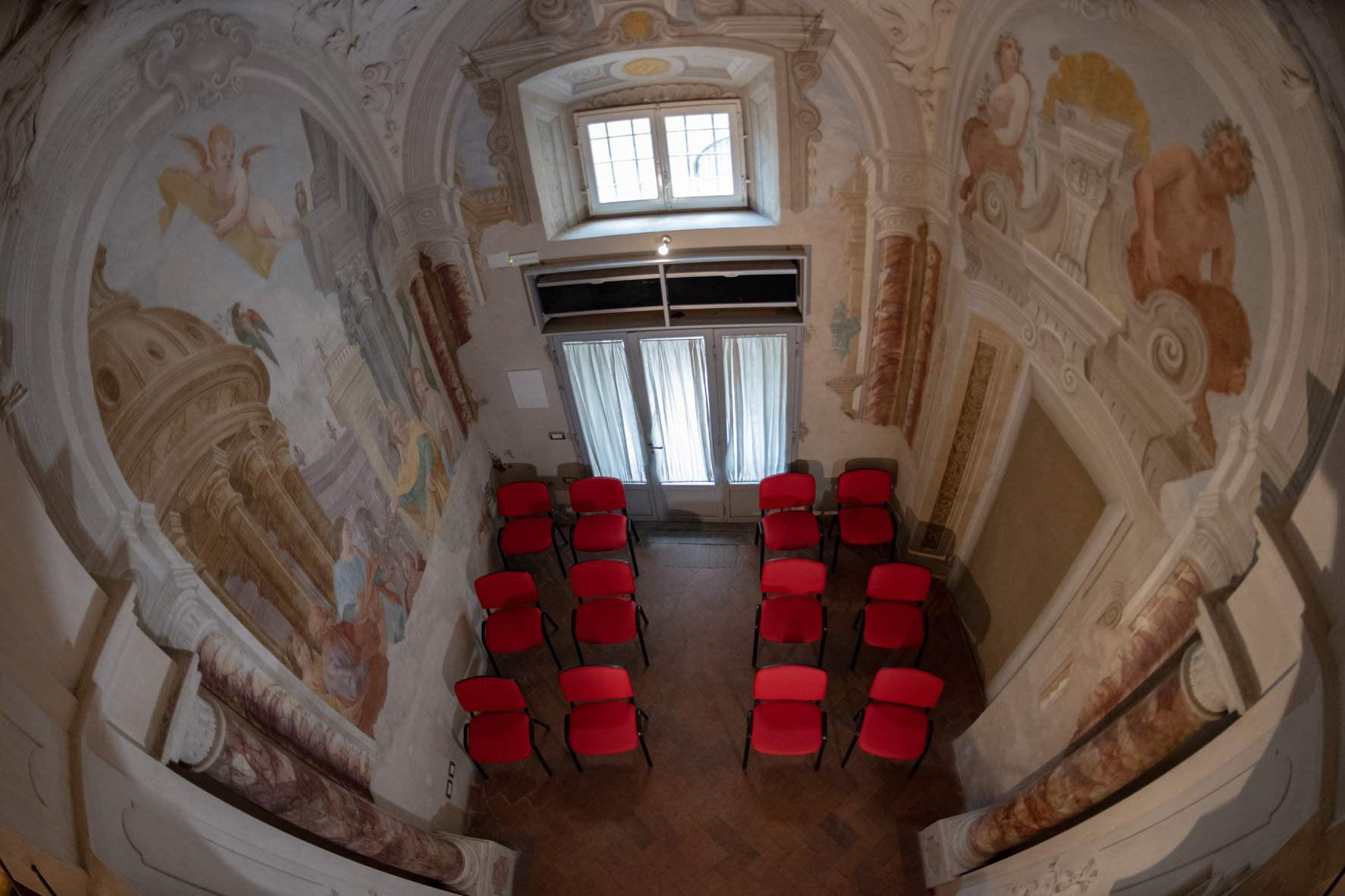Pistoia is rediscovering one of its jewels, the 18th-century Teatrino Gatteschi, one of the world’s smallest theaters. The Gatteschi will reopen to the public after a long shutdown on July 1, 2021, and will once again become a venue for performances, when in recent times it had been closed, open only to sporadic private visits. Dating back to 1707, the Gatteschi Theater is located inside the ancient Palazzo Gatteschi, a historic residence that belonged to the family of the same name from the 14th century until the first half of the 19th century. Listed in the Heritage of Historic Houses of Italy, the year it was built for the family’s private use on the occasion of the wedding of Pistoletto Gatteschi and Maria Francesca Bracciolini, probably designed by canon and architect Francesco Maria Gatteschi (Pistoia, 1656 - 1722). The very small theater occupies an area of about 70 square meters on two levels, with compelling architectural inventions, stucco decorations and visionary trompe-l’il frescoes.
The celebration of weddings and families remains constant in the decorations: indeed, one can admire nuptial frescoes with cupids in flying pairs embraced or bound by ribbons and flowering vines, attributable to Pietro Dandini (Florence, 1646 1712) and his pupil Francesco Lapi, exponents of the late Baroque painting of Florentine and Roman prints in vogue at the court of Cosimo III, and then again the allegorical and warlike stuccoes with panoplies and military banners on which Peace rests, the rocaille cartouches of the four pendentives with the reference to the groom Pistoletto Gatteschi in the bas-relief depiction of the “pistol” (invented in the mid-sixteenth century precisely in Pistoia, a center of skilled gunsmiths), referable to one of the best stucco workers of the time, Giovan Battista Ciceri (+1715) who made use of the designs of the grand ducal sculptor and architect Giovan Battista Foggini (Florence, 1652 1725).
Used as a warehouse between the nineteenth and twentieth centuries, the Teatrino Gatteschi lost its original function over time, which now, thanks to renovation, it will finally be able to regain, returning to hosting events and small theater performances. In fact, the building underwent substantial restoration work between 2011 and 2014 by its previous owners. The interventions involved, among other things, the eighteenth-century frescoes and stuccoes affecting the ceiling, walls and columns. More recently, the property was purchased by Istituti R aggruppati for its final return to the city and to its proper function as a public venue for performances: Istituti Raggruppati restored it with Art Bonus funds (a 7 million euro investment), and now the Teatrino, witness to over three hundred years of history, will welcome visitors once again.
The opening of the Teatrino Gatteschi is part of the new cultural hub "Puccini Gatteschi,“ a larger project of the G713 Pistoia Valley Cultural Association, with the aim of bringing social utility and cultural innovation to the city. ”Puccini Gatteschi" will be based in the spaces of the Istituti Raggruppati, in downtown Pistoia, and will house the Puccini Café, a café-emporium of ideas, the Cinemino Puccini, a small cinema hall for the screening of short films, and precisely the Teatrino Gatteschi, all overlooking a garden, the Piccolo Giardino Puccini, which for the occasion will be transformed into a small contemporary verzura theater, thanks to the winning of the “Piccole Bellezze” call for bids by the Fondazione Cassa di Risparmio di Pistoia e Pescia, which promoted artistic-architectural and environmental projects for social and cultural purposes. It will have a stage, sets and green wings and will host performances, meetings, screenings and small music concerts throughout the summer, strictly live and without amplification. The adjoining Puccini Café, which will offer exclusively local products, will not only be a simple cafeteria, but also an emporium of ideas, a social hub, a place for exchange and social interaction, where over a coffee one can discuss, together with experts, topical issues.
And after the summer, as soon as the epidemiological situation allows, the “Puccini Gatteschi” will also give space to theater and cinema, thanks to the small theater hall and a small room for video projections and meetings with twenty-nine seats (pre-Covid). In September (Sept. 17-19), the Teatrino Gatteschi will host the first edition of the National Micro Theater Festival, organized in collaboration with Theatre for Consciousness, while the Cinemino Puccini will screen mostly short films, silent films and auteur films, often little known but of the highest quality. The Cinemino will also host meetings under the banner of discussion and entertainment, in keeping with the spirit of “Puccini Gatteschi,” which aims to be a crossroads of culture, exchange and interaction. The calendar of performances will be curated by the G713 Association and the artistic direction will be entrusted to Andrea Massaini, creator of the initiative.
 |
| The Gatteschi Theater |
 |
| The Gatteschi Theater |
 |
| The Gatteschi Theater |
 |
| Pistoia rediscovers one of its jewels: the Gatteschi Theater, one of the world's smallest, reopens |
Warning: the translation into English of the original Italian article was created using automatic tools. We undertake to review all articles, but we do not guarantee the total absence of inaccuracies in the translation due to the program. You can find the original by clicking on the ITA button. If you find any mistake,please contact us.